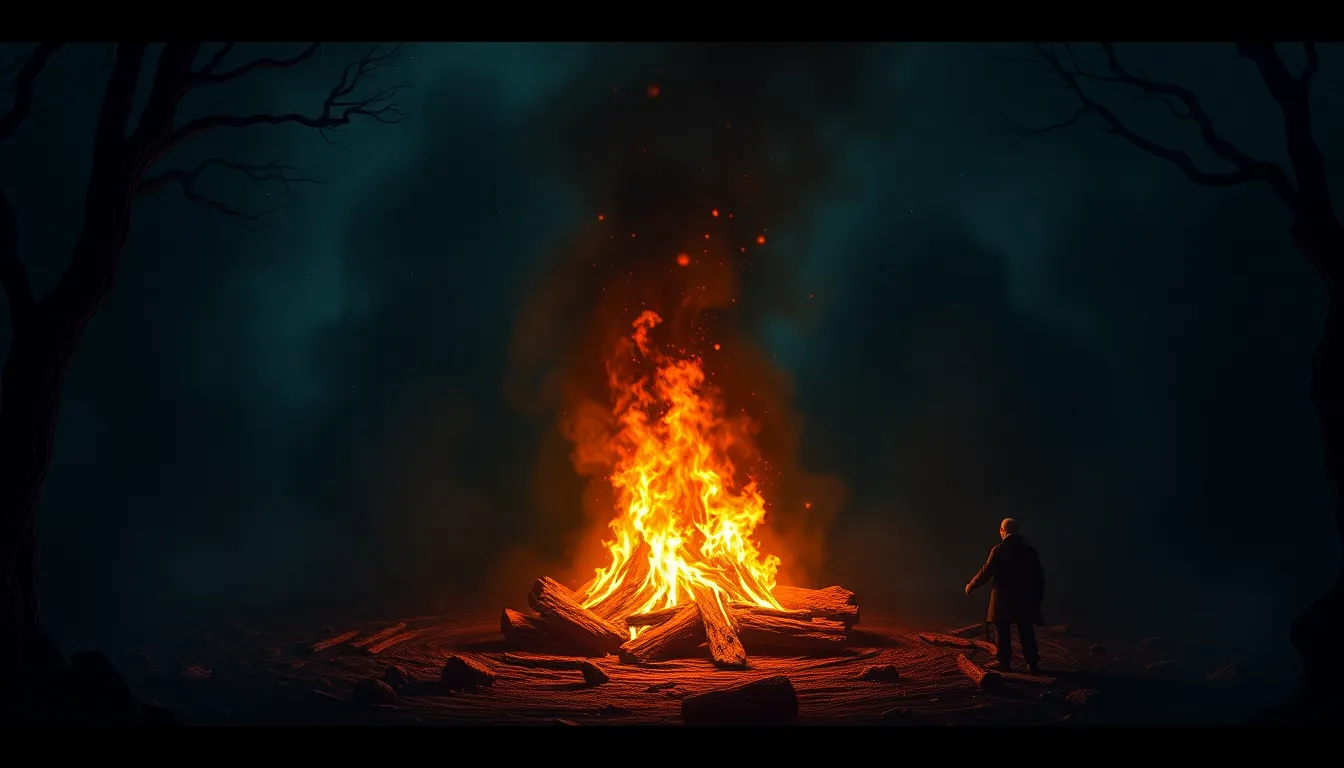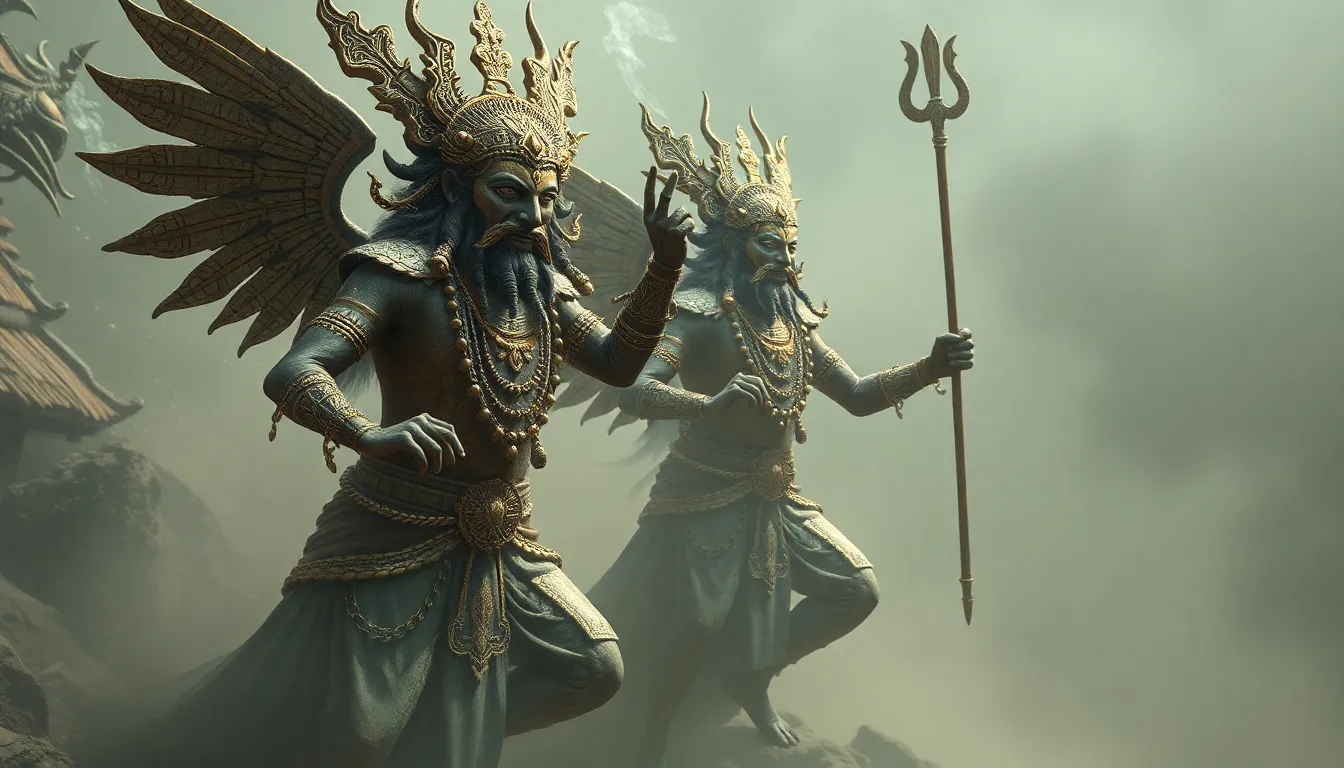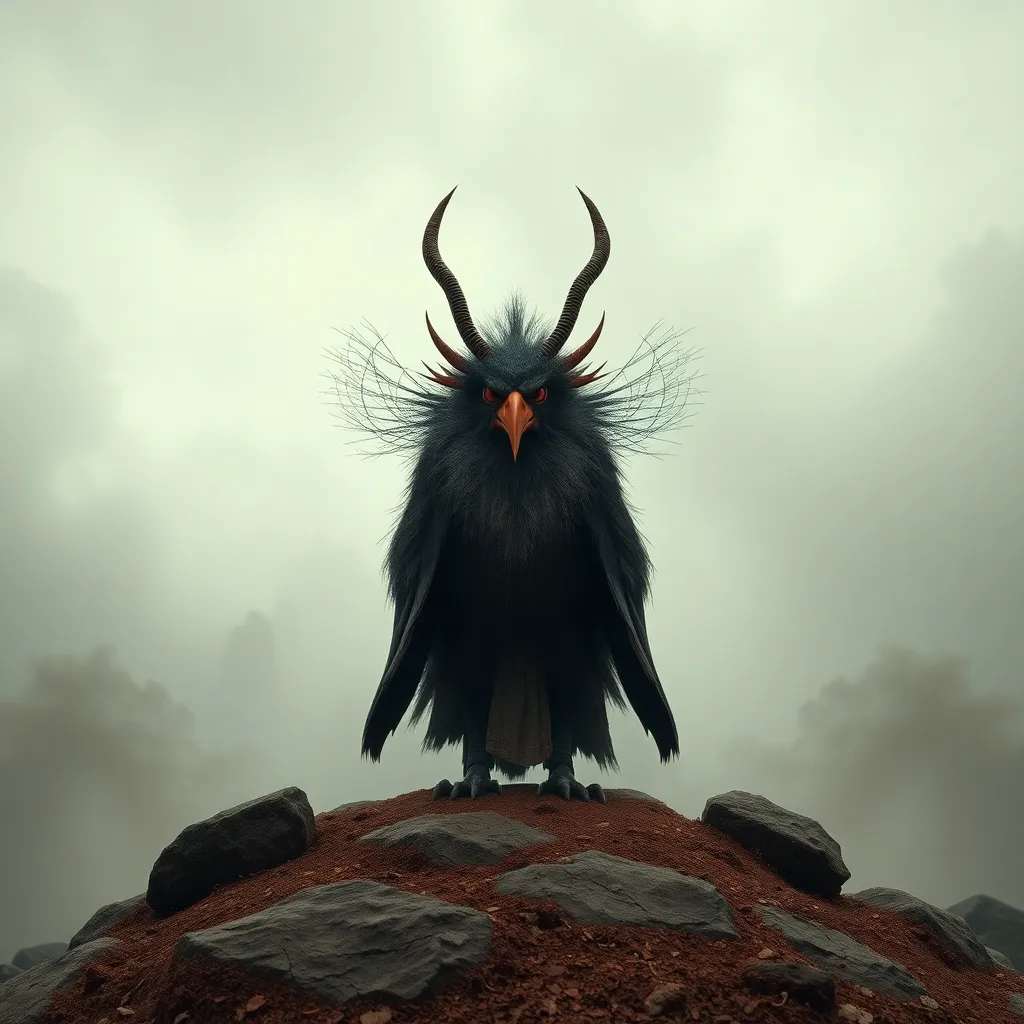The First Fire: How Creation Myths Spark Our Curiosity
Introduction: The Universality of Creation Myths
Creation myths are foundational narratives that explain the origins of the world, humanity, and the cosmos. They are an integral part of cultural heritage, resonating deeply across various civilizations. These myths serve not only as historical accounts but also as vehicles for moral lessons and cultural values.
Storytelling has been a crucial element in human history, serving as a means to pass down knowledge, traditions, and beliefs from one generation to the next. Creation myths ignite curiosity, prompting individuals to reflect on their existence, the nature of the universe, and their place within it. They engage the imagination and encourage exploration, making them timeless narratives that continue to captivate audiences today.
The Symbolism of Fire in Creation Myths
Fire is often portrayed as a transformative element within creation myths. It symbolizes various concepts across cultures, representing destruction, rebirth, and the pursuit of knowledge. The duality of fire – its ability to create and to destroy – reflects the complexities of existence itself.
Some symbolic meanings of fire include:
- Destruction: Fire can consume and obliterate, representing chaos and the end of an era.
- Rebirth: In many myths, fire leads to renewal, akin to a phoenix rising from its ashes.
- Knowledge: Fire often signifies enlightenment and the acquisition of wisdom.
For example, in the Hindu creation myth, the god Vishnu is said to have created the universe from the cosmic fire. Similarly, in the Greek myth of Prometheus, fire symbolizes the gift of knowledge and enlightenment to humanity, albeit with dire consequences.
Cultural Variations: A Global Perspective
Creation myths vary significantly across different cultures, shaped by geography, environment, and societal values. Here are a few notable examples:
- Indigenous Cultures: Many Native American tribes have creation stories that emphasize the connection between nature and spirituality, often involving fire as a cleansing force.
- Asian Myths: In Chinese mythology, the creation narrative includes the cosmic egg and the elemental forces, where fire plays a crucial role in the balance of nature.
- African Narratives: Various African tribes speak of the Great Spirit who ignites the first fire, symbolizing life and the beginning of existence.
- Western Traditions: In Judeo-Christian narratives, the story of creation in Genesis depicts God creating the world in six days, with light (often associated with fire) as the first act of creation.
These diverse narratives highlight how cultural context influences the interpretation of fire and creation, revealing unique perspectives on the human experience.
Psychological Insights: Why We Are Drawn to Myths
Myths play a critical role in helping humans understand their existence. They address fundamental questions about life, death, and the cosmos. Psychologically, stories of creation offer comfort and a sense of belonging, allowing individuals to connect with their cultural identities.
Several psychological theories explain our fascination with creation stories:
- Archetypal Theory: Carl Jung posited that myths represent universal archetypes that resonate with the collective unconscious, influencing our thoughts and behaviors.
- Existential Psychology: Myths help individuals grapple with existential dilemmas, providing narratives that address the search for meaning.
- Cognitive Psychology: The structure of myths engages cognitive processes, as they often contain moral lessons and symbolic meanings that resonate on a personal level.
These insights reveal how creation myths contribute to individual and collective identities, shaping cultural narratives and personal beliefs.
Fire as a Metaphor for Knowledge and Enlightenment
The myth of Prometheus is a powerful example of fire as a metaphor for knowledge and enlightenment. In this Greek myth, Prometheus steals fire from the gods and gives it to humanity, symbolizing the gift of knowledge and the spark of innovation.
This act of rebellion against divine authority highlights the conflict between the pursuit of knowledge and societal norms. Fire, in this context, is both a literal and metaphorical representation of enlightenment, pushing humanity forward but also leading to consequences that challenge societal structures.
The acquisition of knowledge through ‘fire’ often ignites curiosity, prompting exploration and innovation. It raises questions about the ethical implications of knowledge and the responsibilities that come with it. As such, the myth of Prometheus serves as a cautionary tale about the duality of enlightenment.
The Role of Oral Tradition in Preserving Myths
Oral storytelling has been fundamental in preserving myths throughout history. Before the advent of written language, cultures relied on oral traditions to transmit creation myths and other important narratives. This method of storytelling fostered community bonding and cultural continuity.
Over time, myths have evolved through oral tradition, adapting to changing societal values and beliefs. The transition from oral to written forms significantly impacted myth preservation, enabling broader dissemination but also introducing variations in interpretation.
Written texts, while preserving the essence of myths, sometimes alter their meanings and contexts. This evolution reflects the dynamic nature of storytelling and the importance of cultural adaptation.
Creation Myths in Modern Contexts
In contemporary society, ancient myths continue to be reinterpreted and resonate in various forms of literature and media. The themes present in creation myths often mirror modern existential questions, providing a framework for understanding complex societal issues.
Creation myths influence:
- Literature: Many authors draw upon creation myths to craft narratives that explore themes of identity, existence, and morality.
- Film and Television: Modern storytelling often incorporates mythological elements, reflecting the enduring relevance of these narratives.
- Popular Culture: Elements of creation myths appear in music, art, and fashion, showcasing their impact on contemporary expression.
The persistence of these stories in popular culture demonstrates their ability to adapt while retaining their core messages.
The Scientific Perspective: Myths vs. Reality
Creation myths often coexist alongside scientific theories regarding the origins of the universe. While scientific explanations, such as the Big Bang theory, provide empirical insights, myths offer metaphorical interpretations of existence.
The dialogue between mythological explanations and scientific understanding is rich and complex. Fire, in a scientific context, plays a crucial role in processes such as stellar formation and the energy that fuels the universe.
This intersection of myth and science invites further exploration, encouraging individuals to consider both empirical evidence and symbolic narratives when pondering existence.
Curiosity as a Catalyst for Cultural Evolution
Curiosity spurred by myths has historically driven exploration and discovery. The questions raised by these narratives often lead to advancements in civilization, as cultures seek to understand their origins and the universe.
The relationship between mythological narratives and cultural evolution can be seen in:
- Technological Advancements: Curiosity fueled by myth often leads to innovations that shape societies.
- Exploration: Myths can inspire journeys, both physical and intellectual, as individuals seek to uncover truths.
- Cultural Exchanges: Interaction between cultures through myths fosters understanding and collaboration.
Case studies of cultures that evolved through myth-driven curiosity reveal the profound impact of these narratives on societal development.
Conclusion: The Enduring Legacy of Creation Myths
Creation myths hold a significant place in human history, providing insights into our existence and the universe. They ignite curiosity, inspire exploration, and shape cultural identities. As we continue to engage with these timeless narratives, we recognize their enduring legacy and the role they play in fostering understanding and connection among humanity.



